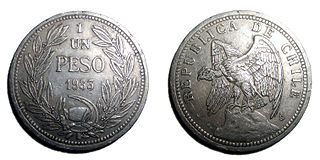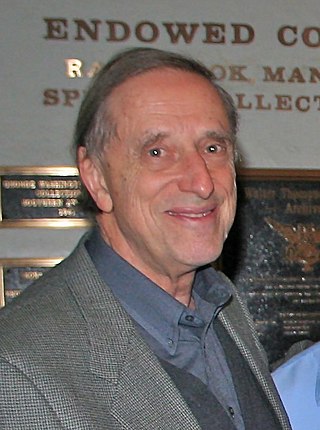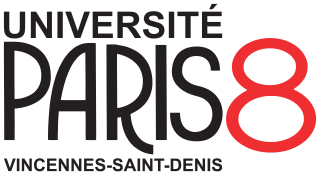Life, experience, and academic work
After finishing his undergraduate studies Mattelart joined a community of secular monks in Brittany for one year, but went on to study Law and Political Science at the Catholic University of Louvain. Afterwards he studied demography at the Institute of Demographic Studies in Paris (founded by the left intellectual Alfred Sauvy, who in 1952 coined the term Third World). Upon finishing his studies he was appointed as an expert on the politics of population by the Vatican, and in 1962 was sent to the Universidad Católica de Chile. While in Chile he married Michèle Mattelart.
While in Chile Mattelart was appointed to confront from a catholic spiritual perspective the strategic models for family planning which were at the time being pushed by the Ford and Rockefeller Foundations and the Alianza para el Progreso (Alliance for Progress—a US official aid program). The US family planning model aimed to limit the natality to "improve the lives of the inhabitants of the continent" and of course in conflict with the Catholic teachings. The revolutionary transformations in Latin America post-1960 require that the Church enter the ideological fray and develop communication strategies applied to "ideological, political and social struggles" to create ideological and political alternatives to atheist communism or the "protestant North American imperialism".
While always based at the Catholic Univ. of Chile, Mattelart underwent a transformation in his thoughts and beliefs. He initiated a collaboration with the Centro de Estudios de la Realidad Nacional (CEREN) (Center for the Study of the National Reality), founded in 1968 under the auspices of the Catholic Univ. Jacques Chonchol was CEREN's director (also an important ideolog with MAPU—a left offshoot of the Christian Democrats which was also part of the Unidad Popular government). CEREN's first research conducted by Armando Mattelart, Michèle Mattelart, Mabel Paccini, et al., had to do with a structural left analysis of the liberal press, the "celebrity" publications, the pseudo-amorous magazines. Mattelart primarily studied El Mercurio , the principal liberal newspaper. This was the starting-point of his lifelong involvement with the history of communications.
The Cuadernos de la Realidad Nacional (Notebooks of the National Reality), CEREN's publication, became the principal ideological generators and emitters during the social democratic government of Salvador Allende (1970–1973). The journal was similar to the French post-structuralist model, and it was primarily aimed to analyze the political economy of the mass media. Under this rubric, Mattelart and Ariel Dorfman published in 1971 the famous pamphlet: Para leer al Pato Donald, manual de descolonización antinorteamericana ( How to read "Donald Duck", a manual for American de-colonization ), where they provided a Marxist structural analysis of global forms of American consumer capitalism. The pamphlet denounces "Yankee media penetration" through an assessment of Disney as global ideological conveyor of American liberal - and increasingly neoliberal - values. The book analyzed the celebrated family of ducks and presented them as nasty agents of the North American cultural imperialism. This book enjoyed great publicity and it became one of the best-selling books in Latin America during the 1970s, largely because of American-centered interventions in Latin America and repeated efforts by American political, economic, and paramilitary assets to undermine the democratically elected government in Chile.
After the Chilean coup of 1973, Mattelart returned to France where (at age 37) he had to restart his academic career—he became a visiting scholar at the University of Paris VIII Saint-Denis. He later became a full professor of Science of Information and Communication—a topic on which he later became a theoretician. In 1974, he worked on La Espiral, a film justifying the Chilean route to socialism. Between 1983 and 1997 he has been Professor of Information and Communication Sciences at the University of Rennes 2 – Upper Brittany, and in the postgraduate program at Paris III (Nouvelle Sorbonne) -Rennes 2. Between 1997-2004, he has been Professor at the Université of Paris VIII. Since September 2004, he is Professor Emeritus.

Carl Barks was an American cartoonist, author, and painter. He is best known for his work in Disney comic books, as the writer and artist of the first Donald Duck stories and as the creator of Scrooge McDuck. He worked anonymously until late in his career; fans dubbed him The Duck Man and The Good Duck Artist. In 1987, Barks was one of the three inaugural inductees of the Will Eisner Comic Book Hall of Fame.

Latin America is a cultural concept denoting the Americas where Romance languages—languages derived from Latin —are predominant. The term was coined in France in the mid-19th century to refer to regions in the Americas that were ruled by the Spanish, Portuguese, and French empires. The term does not have a precise definition, but it is "commonly used to describe South America, Central America, Mexico, and the islands of the Caribbean." In a narrow sense, it refers to Spanish America and Brazil. The term "Latin America" is broader than categories such as Hispanic America, which specifically refers to Spanish-speaking countries; and Ibero-America, a term not generally used that specifically refers to both Spanish and Portuguese-speaking countries while leaving French and British excolonies aside.

Scrooge McDuck is a cartoon character created in 1947 for The Walt Disney Company by Carl Barks. Appearing in Disney comics, Scrooge is a Scottish-born American anthropomorphic Pekin duck. Like his nephew, Donald Duck, he has a yellow-orange bill, legs, and feet. He typically wears a red or blue frock coat, top hat, pince-nez glasses, and spats varying in color. He is portrayed in animation as speaking with a Scottish accent. Originally intended to be used only once, Scrooge became one of the most popular characters in Disney comics and Barks' signature work. Scrooge lives in the city of Duckburg in the fictional US state of Calisota, whose claimed location is in California in the real-world United States.

The Chicago Boys were a group of Chilean economists prominent around the 1970s and 1980s, the majority of whom were educated at the Department of Economics of the University of Chicago under Milton Friedman and Arnold Harberger, or at its affiliate in the economics department at the Pontifical Catholic University of Chile. After they finished their studies and returned to Latin America, they adopted positions in numerous South American governments including, prominently, the military dictatorship of Chile (1973–1990), as economic advisors. Many of them reached the highest positions within those governments. While The Heritage Foundation credits them with transforming Chile into Latin America's best performing economy and one of the world's most business-friendly jurisdictions, critics point to drastic increases in unemployment that can be attributed to counter-inflation policies implemented on their advice. Ronald Reagan and Margaret Thatcher were influenced by Chile's policies and economic reforms.

Saludos Amigos is a 1942 American live-action/animated anthology film produced by Walt Disney and released by RKO Radio Pictures. It is the sixth Disney animated feature film and the first of the six package films produced by Walt Disney Productions in the 1940s. Set in Latin America, it is made up of four different segments; Donald Duck stars in two of them and Goofy stars in one. It also features the first appearance of José Carioca, the Brazilian cigar-smoking parrot. Saludos Amigos premiered in Rio de Janeiro on August 24, 1942. It was released in the United States on February 6, 1943. Saludos Amigos was popular enough that Walt Disney decided to make another film about Latin America, The Three Caballeros, to be produced two years later. At 42 minutes, it is Disney's shortest animated feature to date.
Media imperialism is an area in the international political economy of communications research tradition that focuses on how "all Empires, in territorial or nonterritorial forms, rely upon communications technologies and mass media industries to expand and shore up their economic, geopolitical, and cultural influence." In the main, most media imperialism research examines how the unequal relations of economic, military and cultural power between an imperialist country and those on the receiving end of its influence tend to be expressed and perpetuated by mass media and cultural industries.

Vladimiro Ariel Dorfman is an Argentine-Chilean-American novelist, playwright, essayist, academic, and human rights activist. A citizen of the United States since 2004, he has been a professor of literature and Latin American Studies at Duke University, in Durham, North Carolina, since 1985.

The Metropolitan University of Educational Sciences (Spanish: Universidad Metropolitana de Ciencias de la Educación, is a public and traditional university located in the commune of Ñuñoa, Chile. It is the fourth oldest university in the country, founded in 1889 as college of the University of Chile.

Paris 8 University Vincennes-Saint-Denis is a public university in Paris, France. Once part of the historic University of Paris, it is now an autonomous public institution.
Latin American studies (LAS) is an academic and research field associated with the study of Latin America. The interdisciplinary study is a subfield of area studies, and can be composed of numerous disciplines such as economics, sociology, history, international relations, political science, geography, gender studies, and literature.

The Pontifical Catholic University of Argentina, also known as Catholic University of Argentina (Spanish: Universidad Católica Argentina, is a private university in Argentina with campuses in the cities of Buenos Aires, Santa Fe, Rosario, Paraná, Mendoza and Pergamino. The main campus is located in Puerto Madero, a modern neighborhoods of Buenos Aires.
Martin Rivas is an 1862 novel by Alberto Blest Gana (1830–1920), and is widely acknowledged as the first Chilean novel. The social realist novel is at once a passionate love story and an optimistic representation of Chilean nationhood. Written shortly after a decade of civil conflict, this national epic is an indispensable source for understanding politics, morals, and manners of society in nineteenth-century Chile.
Critical reading is a form of language analysis that does not take the given text at face value, but involves a deeper examination of the claims put forth as well as the supporting points and possible counterarguments. The ability to reinterpret and reconstruct for improved clarity and readability is also a component of critical reading. The identification of possible ambiguities and flaws in the author's reasoning, in addition to the ability to address them comprehensively, are essential to this process. Critical reading, much like academic writing, requires the linkage of evidential points to corresponding arguments.

How to Read Donald Duck is a 1971 book-length essay by Ariel Dorfman and Armand Mattelart that critiques Disney comics from a Marxist point of view as capitalist propaganda for American corporate and cultural imperialism. It was first published in Chile in 1971, became a bestseller throughout Latin America and is still considered a seminal work in cultural studies. It was reissued in August 2018 to a general audience in the United States, with a new introduction by Dorfman, by OR Books.

Salvador Sánchez Cerén is a Salvadoran politician who served as the 42nd President of El Salvador between 1 June 2014 and 1 June 2019. He took office on 1 June 2014, after winning the 2014 presidential election as the candidate of the left-wing Farabundo Martí National Liberation Front (FMLN). He previously served as Vice President under President Mauricio Funes from 2009 to 2014. He was also a guerrilla leader in the Civil War and is the first and only ex-rebel to serve as president.
Claudio Véliz is an economic historian, sociologist and author from Chile, who has held numerous academic posts in various institutions of higher learning including La Trobe University (Australia), Harvard and Boston University.

Gregory Dawes is a distinguished professor of Latin American Studies at North Carolina State University. He has written on Latin American studies and literary theory and is the editor of A Contracorriente, an online academic journal dedicated to approaching social history and Latin American literature from a left-wing perspective, and managing editor of Editorial A Contracorriente, the Journal's publishing spin-off.
Capitalist propaganda is promotion of capitalism, often via mass media, education, or other institutions, primarily by the ruling private and political elite. Capitalist propaganda is commonly deployed in capitalist countries to maintain the cultural hegemony of capitalism, by positioning it as the supreme and only valid system, eliminating opposing and dissenting views, and portraying non-capitalist perspectives and countries as comparatively incompetent and inferior, thus reinforcing capitalism as the dominant ideology. Capitalist propaganda may have lasting psychological effects that remain in a population even if the official government of the people is no longer capitalist, which can produce political instability and rebellion. The term capitalist propaganda has been used since at least the early 20th century to describe how propaganda is used by the capitalist class to indoctrinate workers to act against their own interests.
James Lull is an American social scientist and author known for ethnographic research on the interaction between communications technology and culture. In addition to his academic career, Lull worked for many years as a media professional. His most recent scholarly work focuses on the decisive role of communication in human evolution.

Manuel Antonio Garretón is a Chilean sociologist, political scientist and essayist. He received the National Prize for Humanities and Social Sciences in 2007 for his lifetime contribution to the field.













